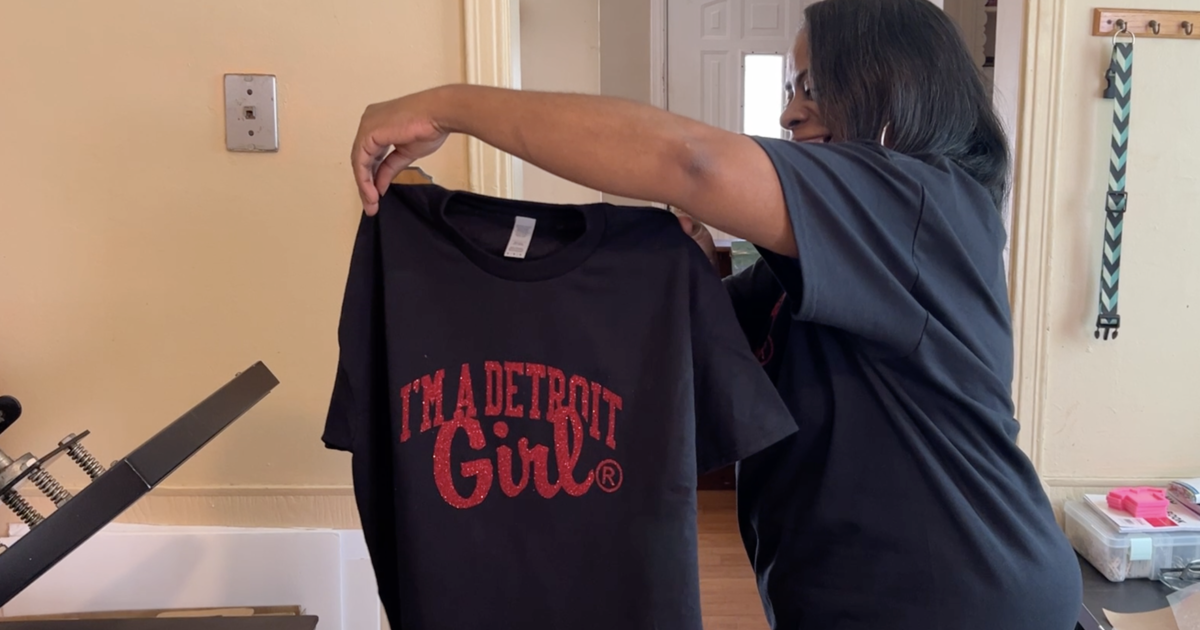Judge Rules Detroit Eligible For Bankruptcy, Says Pensions Can Be Cut
DETROIT (WWJ/AP) - Federal Judge Steven Rhodes has ruled that the city of Detroit can legally file for bankruptcy — and that pensions can be cut as part of the road to solvency.
That doesn't mean, however, that city worker pensions will be cut. He said he won't approve cuts unless the entire plan of adjustment is "fair and equitable."
Those statement from Rhodes comes as he announced Tuesday that Detroit can develop a plan to get rid of $18 billion in debt in the largest public bankruptcy in U.S. history, a case that ultimately could crack a shield protecting public pensions and also put the city's extraordinary art collection up for grabs.
The judge also turned away challenges that the Chapter 9 violates the Contracts Clause of the U.S. Constitution and the requirement in the Constitution that bankruptcy laws be "uniform."
[Read A Summary Of Rhodes' Decision]
Speaking at a noon news conference, Detroit Mayor Dave Bing said the city is in bad shape, but a lot of numbers being thrown around — for example, that there are 78,000 abandoned houses in the city — are overblown.
He said the bankruptcy process will allow the city to find out exactly what the situation is.
"We've gotta get real numbers, because if you don't have facts it's very hard to make intelligent, informed decisions," said Bing. "This bankruptcy gives Detroit a chance to move forward with a clean slate."
Dave Bing On Detroit Bankruptcy
Kevyn Orr On Detroit Bankruptcy
Rhodes declared Detroit is eligible to stay in court, more than four months after filing for Chapter 9 protection. It's the most critical decision so far because it could give local officials a green light to scrub the balance sheet and slowly improve the quality of life in a city that has lost more than 1 million residents since 1950.
"Eligibility means working down a specific checklist and making sure the city has done what it needed to do to be in court. If the city gets its ticket punched, it's game on," said Michael Sweet, a bankruptcy expert who has advised struggling local governments in California.
Rhodes' task at this stage was limited to deciding if Detroit has met certain conditions to be in bankruptcy. A local government must do more than claim it's broke. There must be evidence that Detroit tried to negotiate in "good faith" with creditors or that such talks were simply impossible because of the number of parties and other factors.
During a nine-day trial, unions and pension funds with much to lose in bankruptcy vigorously fought the city on the good-faith requirement, saying a month was not enough time to make deals and avoid the historic filing last summer. Detroit emergency manager Kevyn Orr offered just pennies on every dollar owed to creditors.
But Orr predicted an "Armageddon-like scenario" if the Chapter 9 petition was rejected Tuesday. He said creditors who have been owed money since July will clog the courts with lawsuits to get anything they can while the city attempts to stay afloat.
"I know this is a big story locally," said Bing, "but it has national news people all over the country right now talking about Detroit, and we've gotta start changning the conversation."
"We can't think that the bankruptcy is the worst thing that's ever happened to us," Bing said. "It can help us now, because it will allow us, once again, to deal with the things that should've been dealt with over the last 20 or 30 years."
Mayor-elect Mike Duggan said the decision today has long-lasting implications. "This is a day in Detroit's history that none of us wanted to see," Duggan said in a press release. "Now that Judge Rhodes has ruled the city eligible for bankruptcy, we are about to move into the Plan of Adjustment phase that is likely to define our city government for years to come.
"I'm going to do everything I can to advocate on behalf of Detroit's future in this process. We need to make sure the retirees are treated fairly on the pensions they earned and we need to make certain we come out of bankruptcy in a way we can afford to provide the quality of city services the people of Detroit deserve."
If Rhodes found Detroit wasn't eligible for bankruptcy, it would likely mean the city would have to sit down again with creditors and try to reach an agreement outside of court. If that fails, the city could return and file again for Chapter 9.
Detroit's largest creditors include two pension funds that are underfunded by $3.5 billion, according to Orr. The Michigan Constitution protects public pensions, but Orr believes bankruptcy law trumps that provision. If the city is found eligible for bankruptcy, pension cuts for 23,000 retirees are possible in the final plan. Most get less than $20,000 a year.
The city's art trove at the Detroit Institute of Arts also could be vulnerable. New York auction house Christie's is working on an appraisal of works that could be worth billions. Orr hasn't signaled a strategy yet, but even creditors are demanding a role in determining whether art could be used to raise money.
Jacqueline Esters, 66, said she's willing to take a hit to her $1,006 monthly pension if it means the city can turn itself around. She retired in 1998 after 30 years with the health department but found another job as a community college teacher.
Esters is concerned about her street. She believes her house might fetch just $30,000 if she put it up for sale, compared to $80,000 a decade ago. Someone broke a window on a vacant home just two doors away, meaning vandals are lurking.
"My idea of bankruptcy is you can start all over again," Esters said. "I don't know how much will happen in the neighborhoods. Until people are held accountable, the city is going to look like a dump."
Orr was appointed emergency manager in March under a Michigan law that allows a governor to send a manager to distressed cities, townships or school districts. A manager has extraordinary powers to reshape local finances without interference from elected officials. But by July, Orr and Gov. Rick Snyder decided bankruptcy was Detroit's best option.
[Continuing Coverage: Detroit Bankruptcy]
(TM and © Copyright 2013 CBS Radio Inc. and its relevant subsidiaries. CBS RADIO and EYE Logo TM and Copyright 2013 CBS Broadcasting Inc. Used under license. All Rights Reserved. This material may not be published, broadcast, rewritten, or redistributed. The Associated Press contributed to this report.)



